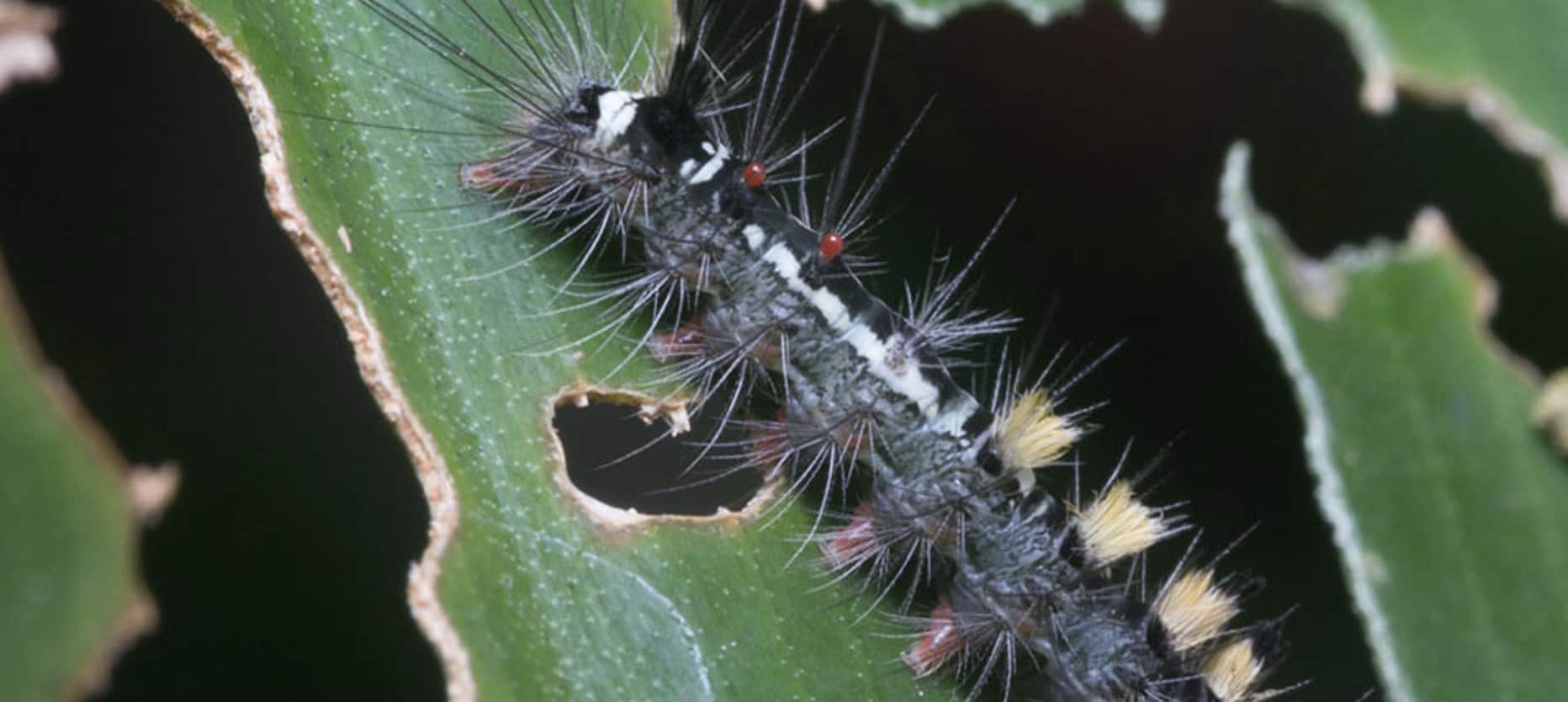Tree-killing bugs not as big a threat to Mississauga this year, officials say
Published April 20, 2023 at 4:56 pm

Mississauga will keep the helicopters on the ground this year as it continues the battle to save the city’s trees from an army of invasive, leaf-eating insects.
City of Mississauga officials say that as they look ahead to dealing with the 2023 population of what they formerly referred to as the “gypsy moth,” there’s no need for an aerial spray program similar to the one unleashed last year on specific pockets of the city.
The City’s 2022 Aerial Spray Program saw low-flying helicopters spray certain areas of the city over a several-week period last spring, concluding on June 8.
It was determined that the battle from the air was the best way to “target and manage” the leaf-munching caterpillars, which left unchecked can kill trees at an alarming rate.
As the City plans this year’s strategy to control the population of Lymantria dispar dispar (LDD), more commonly known previously as the “gypsy moth,” but moving forward to be called the “spongy month,” it says the population forecast for 2023 is low.
“Based on the success of the 2022 Aerial Spray Program (in suppressing the “spongy moth” population) and population predictions for the year, an aerial spray is not required in 2023,” City officials said in an online update.
Moving forward this year, the City says it will monitor and control the “spongy moth” populations by first identifying where the highest concentrations exist.
City-owned trees in those areas will then receive treatments that may include:
- scraping egg masses off infected trees and killing the eggs
- wrapping burlap around trees to capture caterpillars
- injecting a botanical insecticide into the tree
- unleashing a ground spray attack
In preparation for this year’s strategy, Mississauga hired a consulting team to assess the “spongy moth” population and predict the numbers for 2023.
“The population forecast for the year is low, and well below the threshold for concern across the city,” officials say. “Predicted low levels of defoliation are not expected to have significant impacts on tree and forest health.”
City staff said late last year that in the years to come, they’ll seek to fine-tune the program so, like Toronto, they can target more specific areas for the invasive pest each spring or every other spring as needed.
Mississauga officials also encourage people to keep an eye on trees on their property for signs of LDD.
The “spongy moth” has been an unwelcome presence in Mississauga for years and it has, at times, presented a serious threat to the tree canopy in several parts of the city as it eats oak trees and other hardwood species.
The 2022 spray program protected hardwood trees like maple, oak, elm, ash, poplar, willow and birch.
Prior to last year, the City last spray-bombed areas in 2018, which helped slow the LDD population for about two years. But the tree-munching pest returned in force in Mississauga and across southern Ontario.
Native to Europe, the “spongy moth” was introduced to North America several decades ago. The caterpillars eat leaves from trees during the spring and early summer.
While healthy trees can grow back their leaves in the same season, an ongoing infestation weakens trees and can make them more likely to be damaged from other insects as well.
INsauga's Editorial Standards and Policies